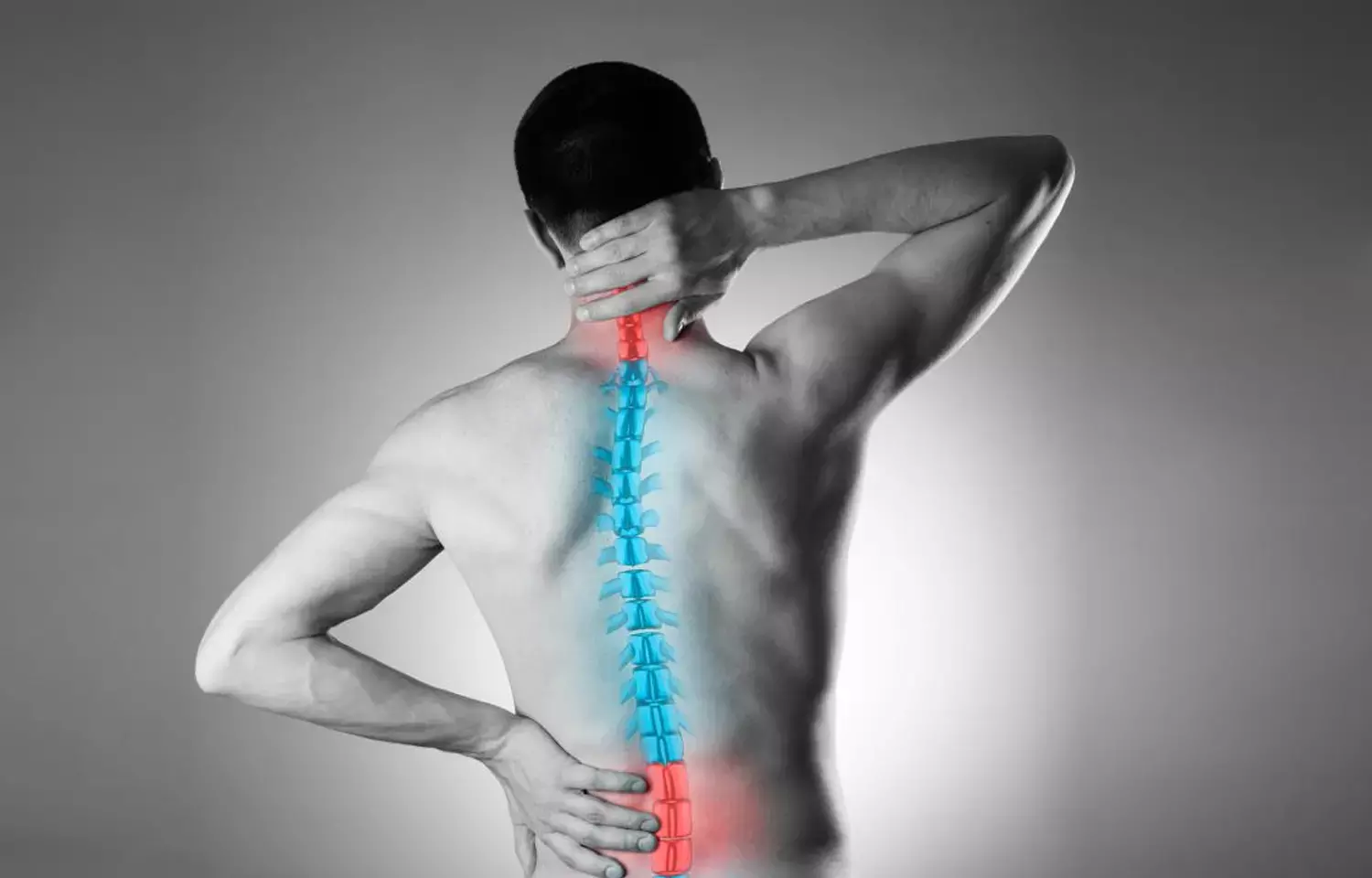- Home
- Medical news & Guidelines
- Anesthesiology
- Cardiology and CTVS
- Critical Care
- Dentistry
- Dermatology
- Diabetes and Endocrinology
- ENT
- Gastroenterology
- Medicine
- Nephrology
- Neurology
- Obstretics-Gynaecology
- Oncology
- Ophthalmology
- Orthopaedics
- Pediatrics-Neonatology
- Psychiatry
- Pulmonology
- Radiology
- Surgery
- Urology
- Laboratory Medicine
- Diet
- Nursing
- Paramedical
- Physiotherapy
- Health news
- Fact Check
- Bone Health Fact Check
- Brain Health Fact Check
- Cancer Related Fact Check
- Child Care Fact Check
- Dental and oral health fact check
- Diabetes and metabolic health fact check
- Diet and Nutrition Fact Check
- Eye and ENT Care Fact Check
- Fitness fact check
- Gut health fact check
- Heart health fact check
- Kidney health fact check
- Medical education fact check
- Men's health fact check
- Respiratory fact check
- Skin and hair care fact check
- Vaccine and Immunization fact check
- Women's health fact check
- AYUSH
- State News
- Andaman and Nicobar Islands
- Andhra Pradesh
- Arunachal Pradesh
- Assam
- Bihar
- Chandigarh
- Chattisgarh
- Dadra and Nagar Haveli
- Daman and Diu
- Delhi
- Goa
- Gujarat
- Haryana
- Himachal Pradesh
- Jammu & Kashmir
- Jharkhand
- Karnataka
- Kerala
- Ladakh
- Lakshadweep
- Madhya Pradesh
- Maharashtra
- Manipur
- Meghalaya
- Mizoram
- Nagaland
- Odisha
- Puducherry
- Punjab
- Rajasthan
- Sikkim
- Tamil Nadu
- Telangana
- Tripura
- Uttar Pradesh
- Uttrakhand
- West Bengal
- Medical Education
- Industry
Is endoscopic spinal surgery better than microscopic surgery for lumbar spinal stenosis?

South Korea: A new study published in Global Spine Journal suggests that although endoscopic spinal surgery (ESS) resulted in a shorter hospital stay, there were no substantial differences in safety and effectiveness between endoscopic spinal surgery and microscopic spinal surgery (MSS).
As alternatives to traditional surgery, many minimally invasive surgical methods have been created. Endoscopic spinal surgery (biportal ESS [BESS] or uniportal ESS [UESS]) is more beneficial than microscopic spinal surgery, according to current research. Kyu-Bok Kang and colleagues conducted this systematic review and meta-analysis to analyze the most recent data on the use of ESS versus MSS in lumbar spinal stenosis.
A comprehensive electronic search was conducted till December 2019 using Embase, PubMed, Cochrane Central Database, and Korea Med to locate papers that compared ESS with MSS in individuals with lumbar spinal stenosis.
The key findings of this study were as follows:
1. Three controlled randomized trials, six retrospective cohorts, and two prospective case-control studies yielded a total of 1167 participants.
2. This review only included three direct comparison studies.
3. The study has intrinsic limitations, particularly with regard to the study design.
4. At the final follow-up, a meta-analysis of hospital stay (days) revealed a significant difference between BESS and MSS, UESS and MSS, BESS +UESS, and MSS.
5. However, the meta-analysis revealed that there was no notable change in the other outcomes.
The study design of this systematic review and meta-analysis has inherent limitations. Only three direct comparison studies were given in this study. Other research was made up of disparate case series or retrospective cohorts. As a result, researchers were unable to aggregate findings from separate investigations.
In conclusion, although ESS had a shorter hospital stay, there were no major differences in effectiveness and safety between ESS and MSS. However, because of the heterogeneity (the pooling of heterogeneous data) in this study, these findings have weak evidence. As a result, multicenter RCTs comparing ESS with MSS are required to give high-quality data and a more robust recommendation.
Reference:
Kang, K.-B., Shin, Y.-S., & Seo, E.-M. (2022). Endoscopic Spinal Surgery (BESS and UESS) Versus Microscopic Surgery in Lumbar Spinal Stenosis: Systematic Review and Meta-Analysis. In Global Spine Journal (p. 219256822210832). SAGE Publications. https://doi.org/10.1177/21925682221083271
Medical Dialogues consists of a team of passionate medical/scientific writers, led by doctors and healthcare researchers. Our team efforts to bring you updated and timely news about the important happenings of the medical and healthcare sector. Our editorial team can be reached at editorial@medicaldialogues.in.
Dr Kamal Kant Kohli-MBBS, DTCD- a chest specialist with more than 30 years of practice and a flair for writing clinical articles, Dr Kamal Kant Kohli joined Medical Dialogues as a Chief Editor of Medical News. Besides writing articles, as an editor, he proofreads and verifies all the medical content published on Medical Dialogues including those coming from journals, studies,medical conferences,guidelines etc. Email: drkohli@medicaldialogues.in. Contact no. 011-43720751


